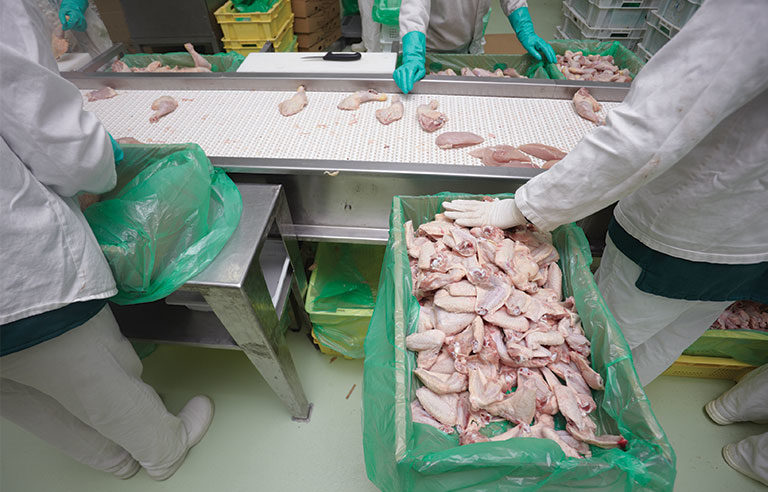Poultry-processing line speeds back in the spotlight

Washington – A group of House Democrats, led by Rep. Rosa DeLauro (D-CT), is urging Secretary of Agriculture Sonny Perdue to reject a renewed call to increase line speeds in poultry-processing plants.
In a letter sent June 29, the group states that a recent request from Rep. Doug Collins (R-GA) to bump maximum line speeds to 175 birds per minute from 140 “would have serious detrimental effects to food, worker and animal safety.”
In a 2014 final rule, the Department of Agriculture declined to increase line speeds.
DeLauro’s letter cites data from the Bureau of Labor Statistics that shows poultry workers had an injury rate nearly 50 percent higher than the national average and an illness rate seven times higher than any other industry. It also states that the poultry industry is 12th in the number of work-related hospitalizations and amputations.
“Couple these issues with a known history of systematic underreporting of work-related injuries and illnesses in the poultry industry, we feel strongly that increasing the line speeds will further exacerbate the already unsafe conditions poultry workers face,” the letter states.
The letter comes a little more than a month after Collins sent his own letter asking Perdue to consider increasing line speeds to make “U.S. processing facilities more competitive in the global market.”
In his letter, sent May 22, Collins said poultry processors in Canada, South America, Asia and Europe already are operating safely at 175 to 200 birds per minute. He pointed to the Hazard Analysis Critical Control Point-Based Inspection Models Project, which in 2007 allowed poultry processors to increase their line speeds.
Collins said the plants “still showed a steady decrease in instances of carcass contamination,” adding, “while I take worker safety very seriously, evidence that faster line speeds would decrease worker safety appears limited at best.”
Post a comment to this article
Safety+Health welcomes comments that promote respectful dialogue. Please stay on topic. Comments that contain personal attacks, profanity or abusive language – or those aggressively promoting products or services – will be removed. We reserve the right to determine which comments violate our comment policy. (Anonymous comments are welcome; merely skip the “name” field in the comment box. An email address is required but will not be included with your comment.)

